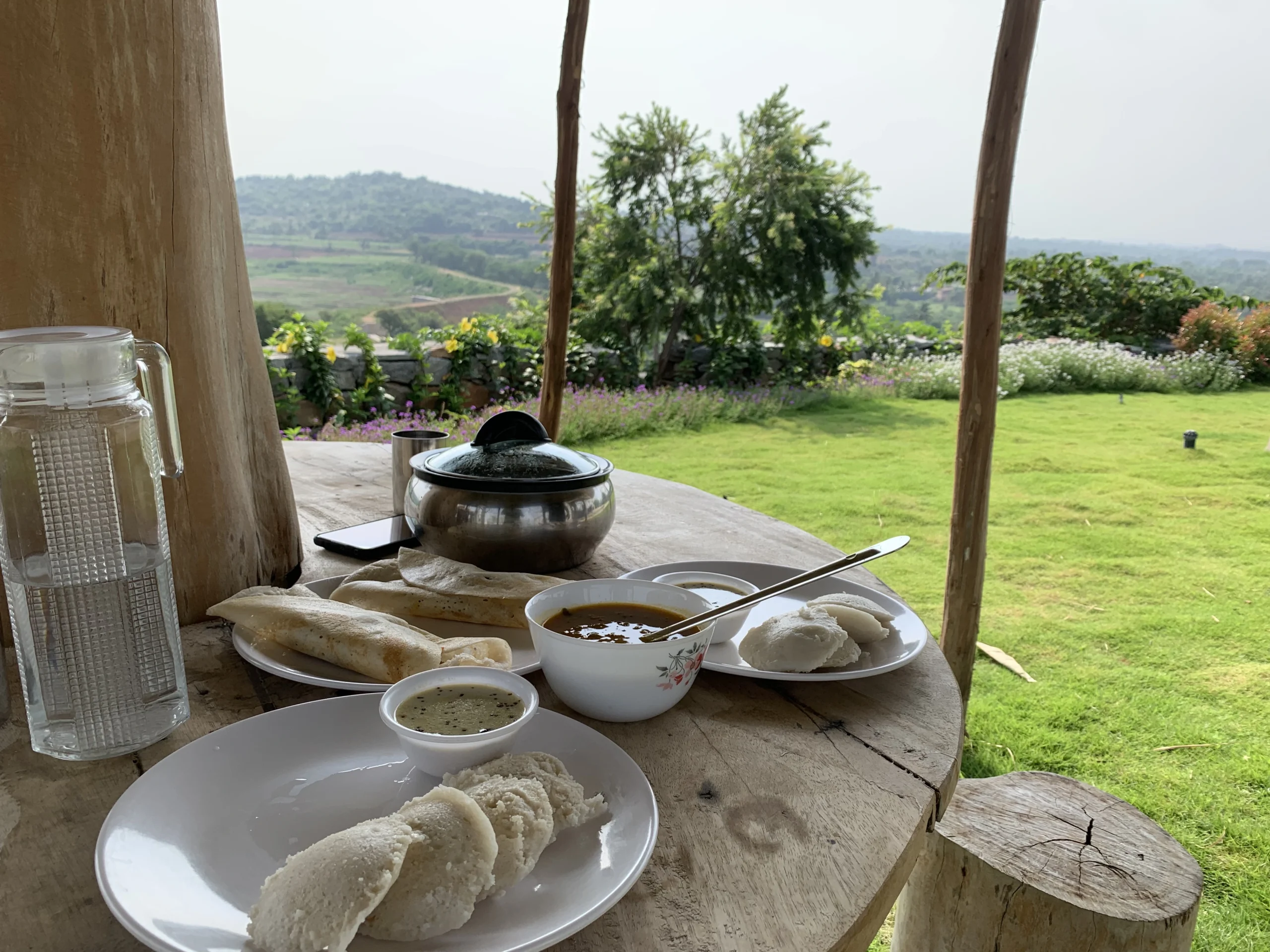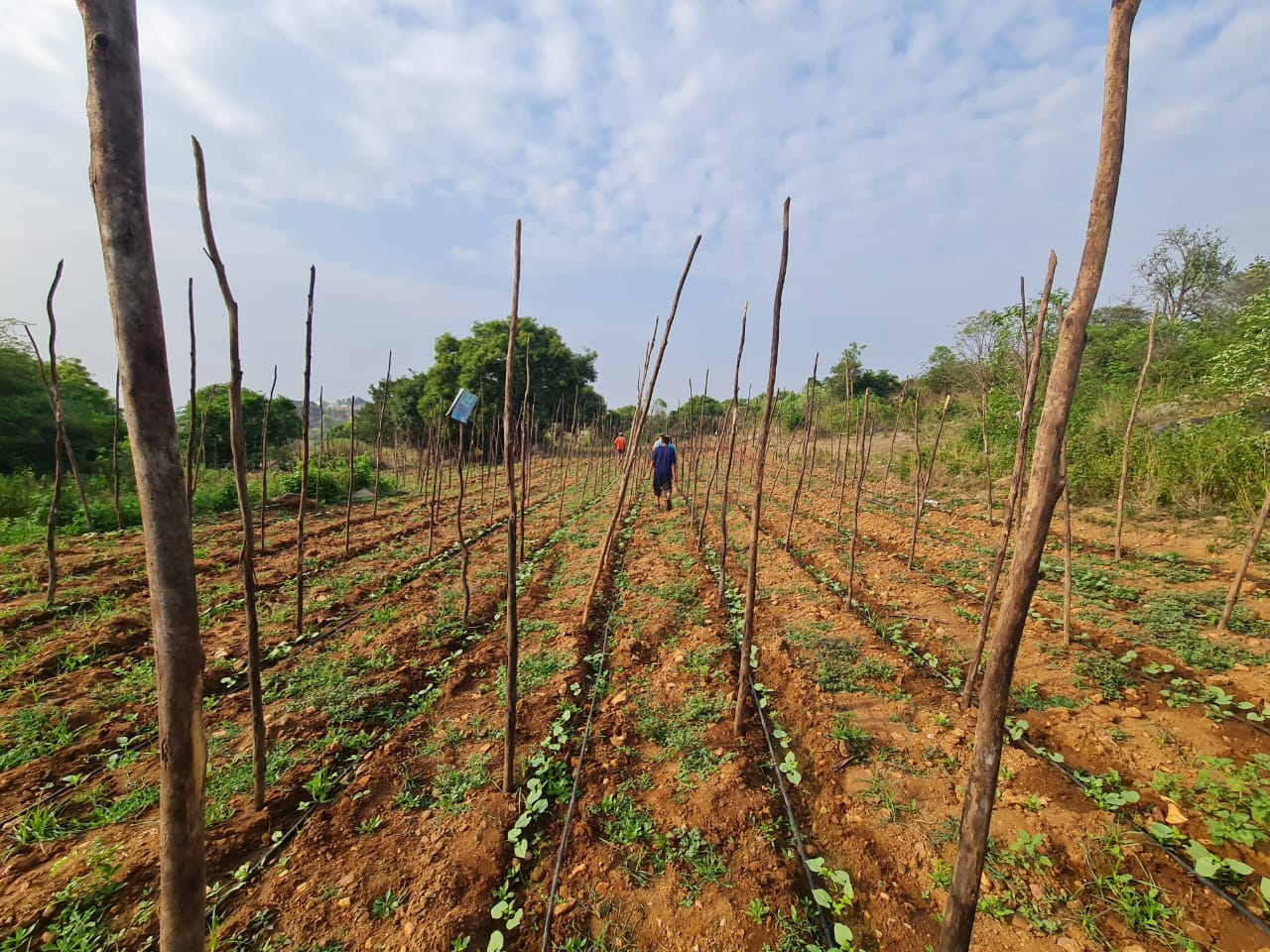These days, more people are paying attention to what they eat. Organic and natural foods aren’t just a passing trend, they’re becoming a way of life. At Ecoland Farms, we don’t just believe in healthy eating – we live it.
Our plant-based dishes are not only tasty but also full of nutrients, and we take pride in making everything with love and care. We go the extra mile to bring you the freshest, locally sourced organic food.
Wholesome, Local, and Delicious
At Ecoland Farms, you can enjoy simple yet flavorful Tamilian dishes. The ingredients we use are grown with minimal fertilizers and prepared without any artificial additives. Everything is as natural as possible.
We love sharing the stories behind our food, from cultural traditions to time-honored recipes that are rooted in rich Indian heritage. It’s more than just a meal – it’s an experience.
Supporting Our Local Farmers
We work closely with local farmers in the village, promoting sustainable farming practices. All of the seasonal crops are grown using organic seeds, compost, manure, and natural pest control methods because we understand the advantages and disadvantages of organic farming.
Yes, it’s hard work, but the payoff is huge – fresh, chemical-free food that tastes as good as it is healthy. Plus, it’s our way of helping to reduce our carbon footprint and preserving the environment for future generations.
What’s Growing at Ecoland Farms?
On our farm and in the surrounding village, we grow a variety of fresh produce, including:
- Vegetables: Carrots, beans, drumsticks, gourds, okra, spinach, pumpkins, and shallots.
- Crops: Groundnuts, ragi, lentils, beans, and different millet varieties.
Whatever we don’t grow ourselves, we source from nearby farmers and local vendors. Even our flour is a blend of local millet, and we make our curry powders from freshly ground herbs and lentils. Absolutely nothing comes out of a packet!
Our Signature Dishes
Here are a few must-try dishes when you stay with us:
- Sambar: Made with freshly ground spices, farm-fresh veggies, and our unique blend of flavors.
- Ragi Mudde: Soft, delicious balls made from our own ragi flour. Served hot with curry, it’s a true finger-licking treat!
- Flatbreads: Sama millet and Jowar rotis that are not just healthy but incredibly tasty – we bet you’ll want more than one!
- Clear Soups: Instead of tea, try our flavorful, aromatic clear soups made from freshly plucked edible leaves – a refreshing way to cleanse your body.
Sweet Without the Sugar
Here at Ecoland Farms, we like to keep things natural, even when it comes to sweeteners. Instead of sugar, we use jaggery – an unrefined sugar cane extract that’s packed with iron. It’s a much healthier alternative to regular white sugar.
Unless you specifically ask for sugar, we stick to using jaggery in all our sweet dishes.
Recharge at Ecoland Farms
If you’re looking to escape the noise and chaos of the city, Ecoland Farms is the perfect retreat. Detox your body with our pure, ‘Sattvik’ meals, lovingly prepared by our in-house chef.
Need a change of scenery while working remotely? You can take a week off to work from our farm! Wake up feeling refreshed, and surrounded by nature, and tackle your work with a clearer mind. It’s the perfect balance of work and relaxation.
At Ecoland Farms, it’s all about slowing down, connecting with nature, and enjoying the freshest, healthiest food you can find. Come stay with us, and see for yourself how good life can taste!

